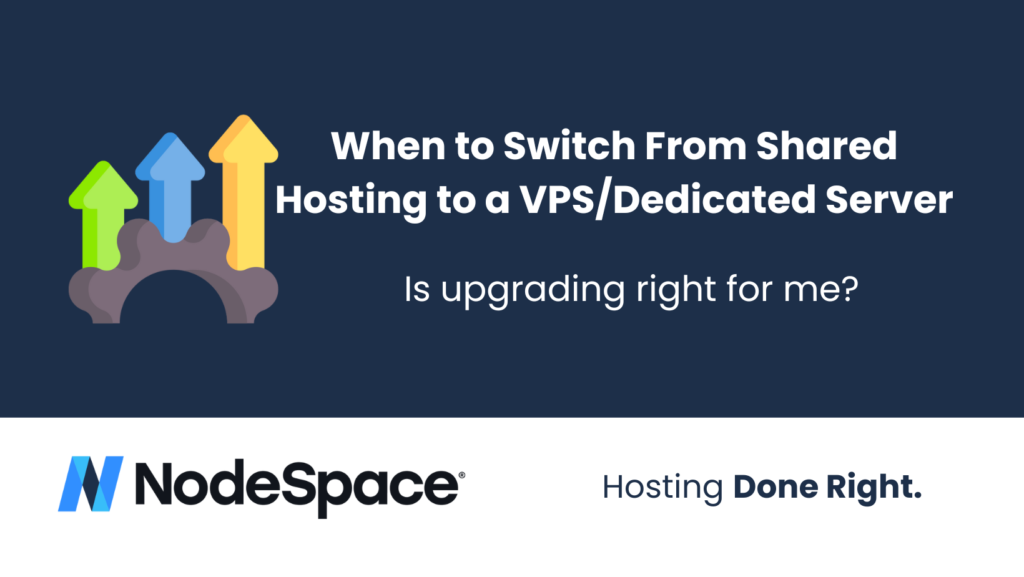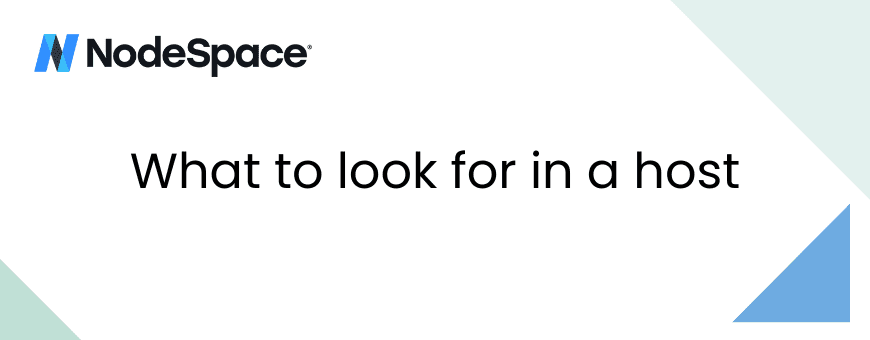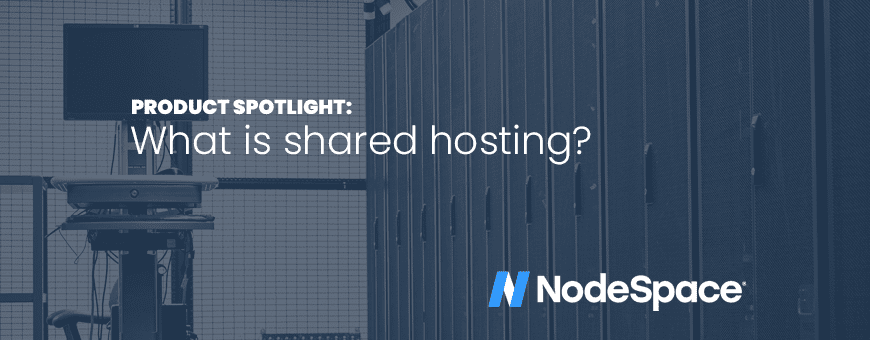If you have a website, you might be wondering when it might be a good idea to upgrade from shared hosting to a VPS or dedicated server. Shared hosting is the most common and affordable option for beginners, but it has some limitations that can affect your website’s performance, security and scalability. In this blog post, we will explain what shared hosting, VPS and dedicated server are, and how to decide when to switch to a higher level of hosting.
Shared Hosting
Shared hosting is when you share a server with other websites. You have a certain amount of disk space, bandwidth, memory and CPU resources allocated to your account, but you don’t have full control over the server settings or software. The main advantages of shared hosting are that it is cheap, easy to use and suitable for small websites that don’t have high traffic or complex functionality.
However, shared hosting also has some drawbacks. For example:
- You might experience slow loading times or downtime if your website or other websites on the same server receive a lot of traffic or consume a lot of resources.
- You might face security risks if other websites on the same server are hacked or infected with malware.
- You might have limited flexibility and customization options if you want to install specific software or configure the server to your needs.
VPS hosting
VPS (Virtual Private Server) is when you have a virtual server that is dedicated to your website. You have more disk space, bandwidth, memory and CPU resources than shared hosting, and you have full root access to the server. This means you can install any software you want and customize the server settings to your preferences. The main advantages of VPS are that it is faster, more secure and more scalable than shared hosting.
However, VPS also has some drawbacks. For example:
- You need to have some technical skills or hire someone who does to manage the server and keep it updated and secure.
- You need to pay more than shared hosting, although not as much as dedicated server.
Dedicated Server Hosting
Dedicated server is when you have a physical server that is exclusively for your website. You have the maximum amount of disk space, bandwidth, memory and CPU resources available, and you have full control over the hardware and software of the server. The main advantages of dedicated server are that it is the most powerful, reliable and customizable option for hosting your website.
However, dedicated server also has some drawbacks. For example:
- You need to have advanced technical skills or hire someone who does to manage the server and keep it updated and secure.
- You need to pay a lot more than shared hosting or VPS.
When to Upgrade
So, when should you upgrade from shared hosting to a VPS or dedicated server? There is no definitive answer to this question, as it depends on your website’s needs and goals. However, here are some signs that might indicate that you need a higher level of hosting:
- Your website is growing fast and receiving more traffic than your shared hosting plan can handle.
- Your website is slow or experiencing frequent downtime due to high resource consumption or server overload.
- Your website requires specific software or configuration that is not available or allowed on shared hosting.
- Your website handles sensitive data or transactions that require a higher level of security and privacy.
If you notice any of these signs, you might want to consider upgrading your hosting plan to a VPS or dedicated server. This will improve your website’s performance, security and scalability, and give you more freedom and flexibility to customize your server.
Before you switch, consider the following…
However, before you make the switch, you should also consider the following factors:
- Your budget: How much can you afford to spend on hosting? VPS and dedicated server are more expensive than shared hosting, so you need to make sure that you can cover the costs without compromising other aspects of your business.
- Your skills: How comfortable are you with managing a server? VPS and dedicated server require more technical knowledge and skills than shared hosting, so you need to be prepared to learn how to use them or hire someone who can help you.
- Your needs: How much resources do you actually need for your website? VPS and dedicated server offer more resources than shared hosting, but you don’t want to pay for more than what you need. You should analyze your website’s traffic patterns, resource consumption and functionality to determine the optimal level of hosting for your website.
To sum up, upgrading from shared hosting to a VPS or dedicated server can be a good idea if your website has outgrown its current hosting plan and needs more speed, security and flexibility. However, you should also weigh the pros and cons of each option and choose the one that suits your budget, skills and needs best.
If you’re not sure if you need to upgrade, or just want an honest opinion, feel free to contact us and a solutions expert will analyze your current hosting situation and then make recommendations. It’s free, and there’s no obligation.



